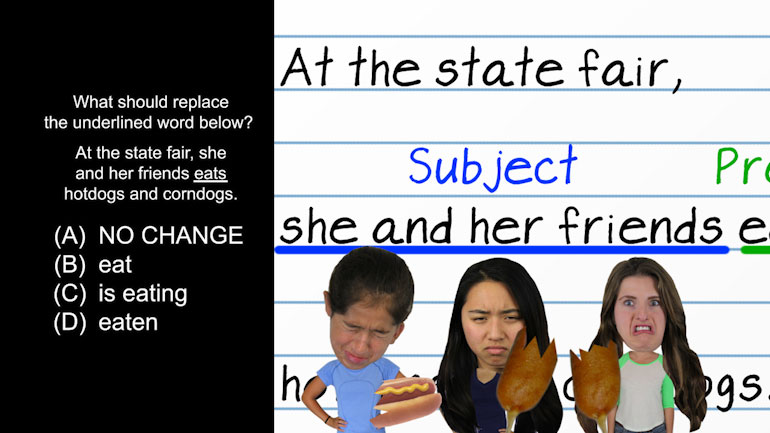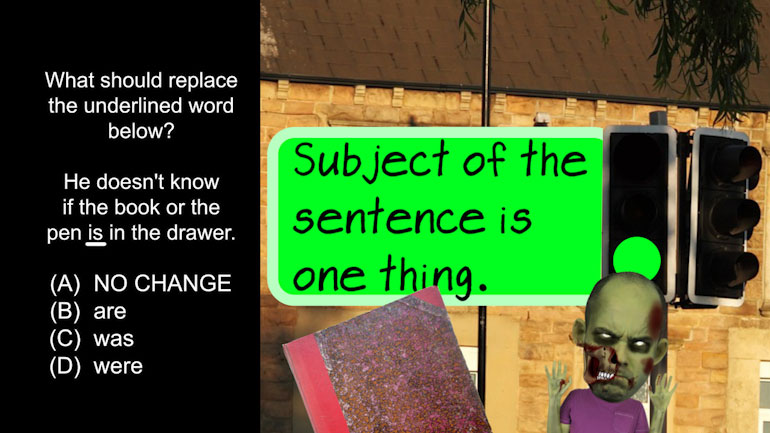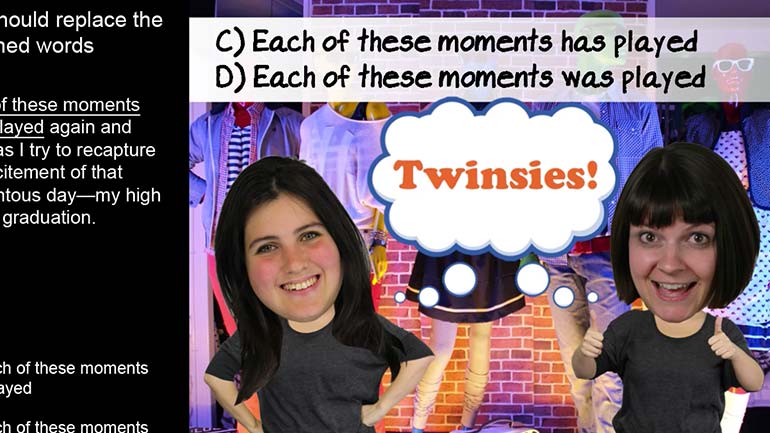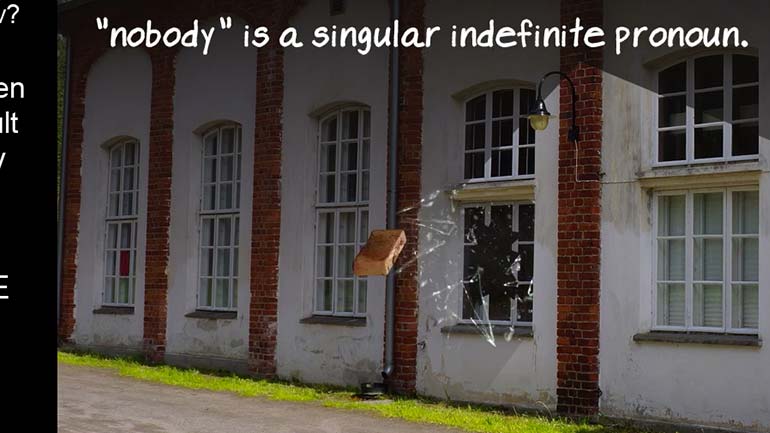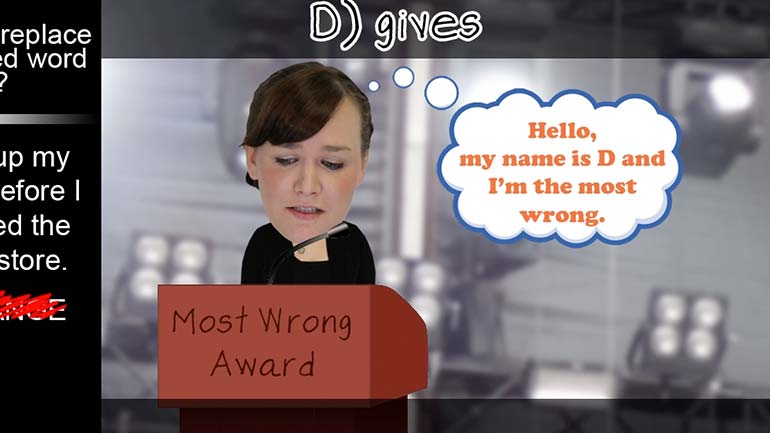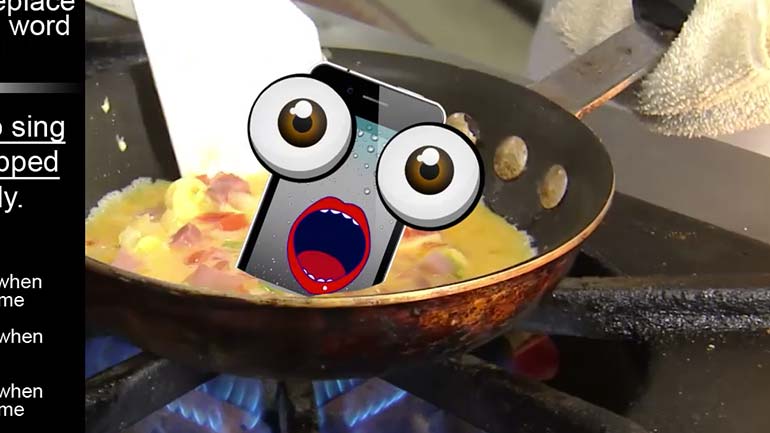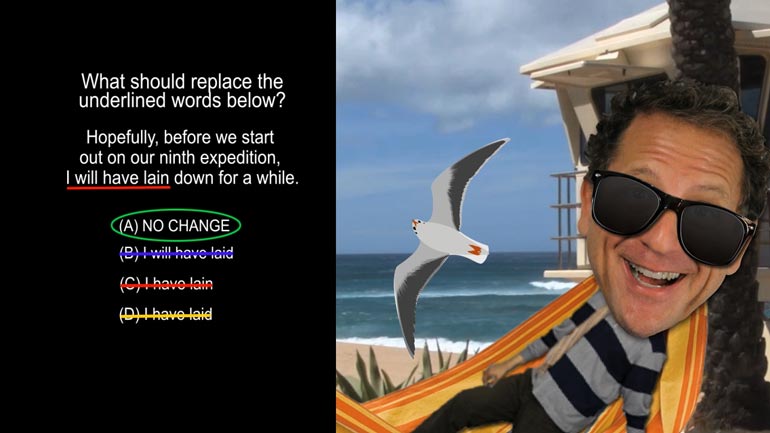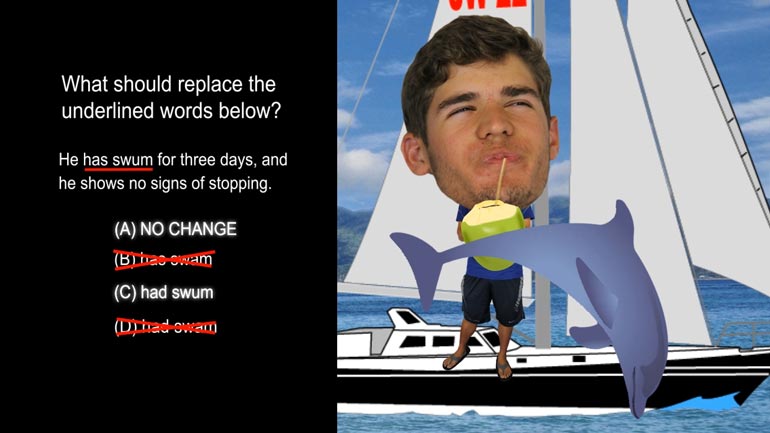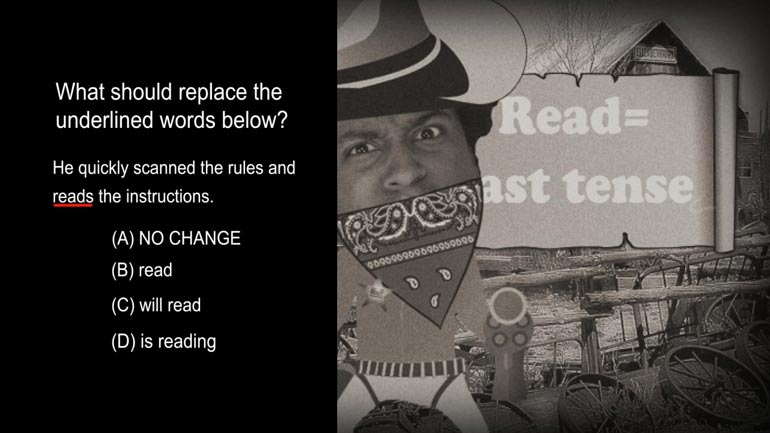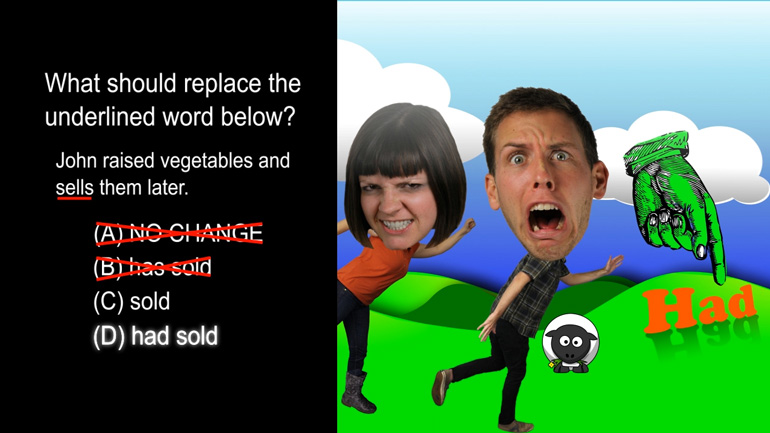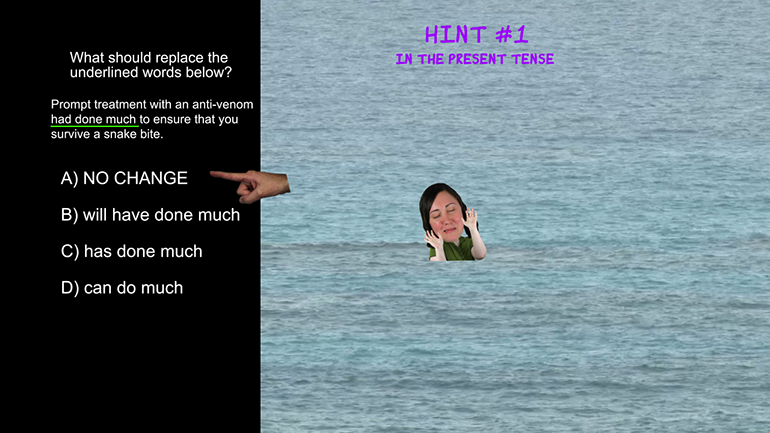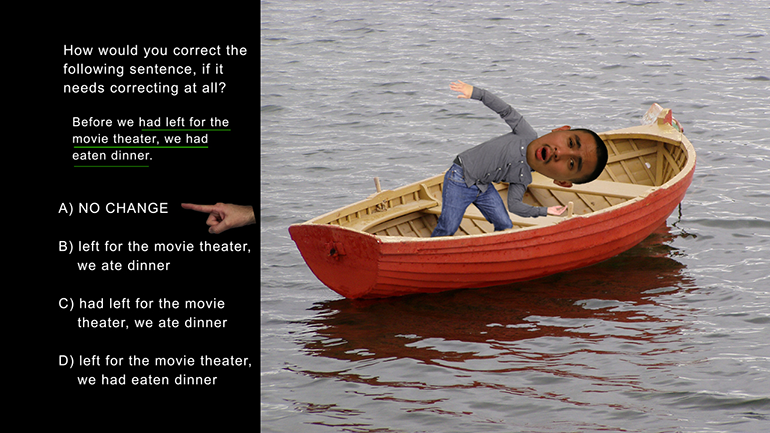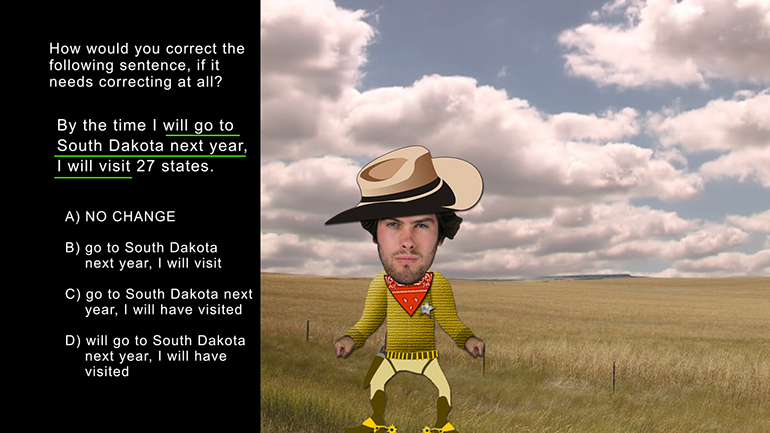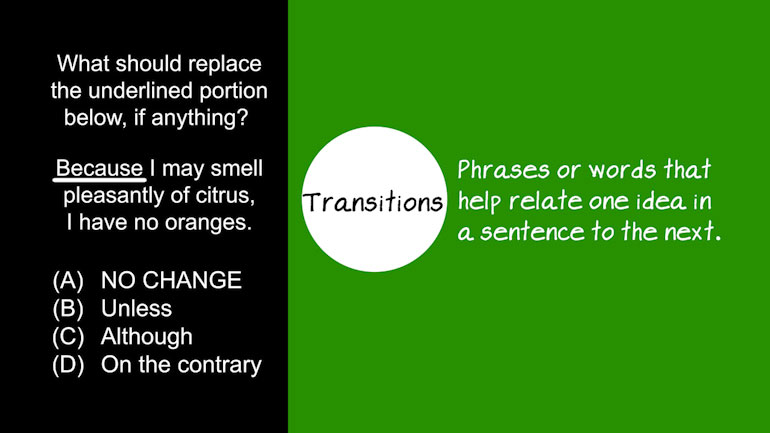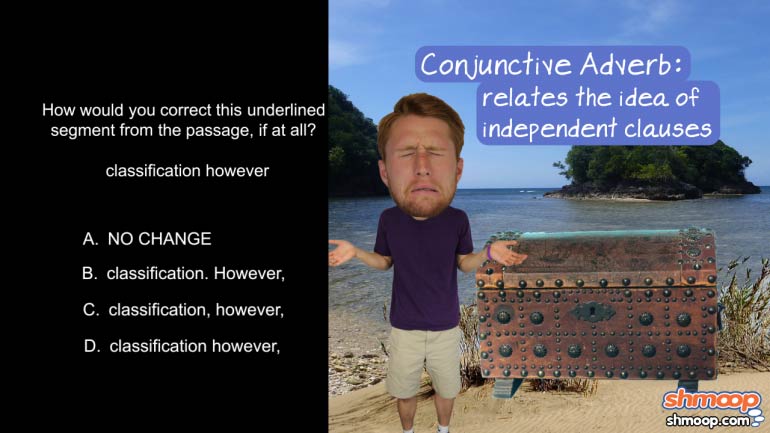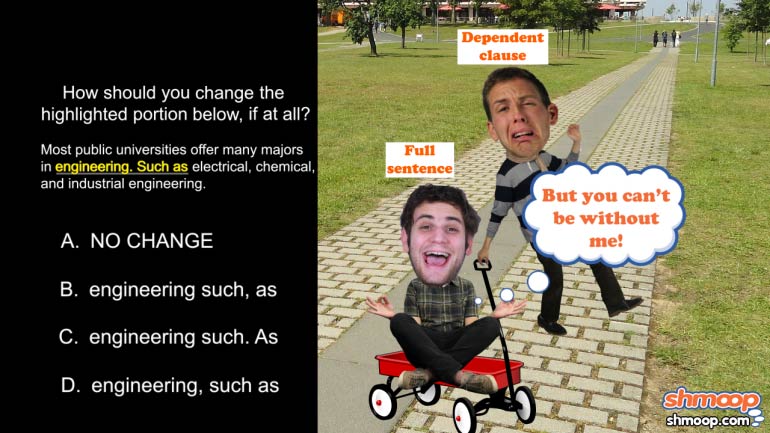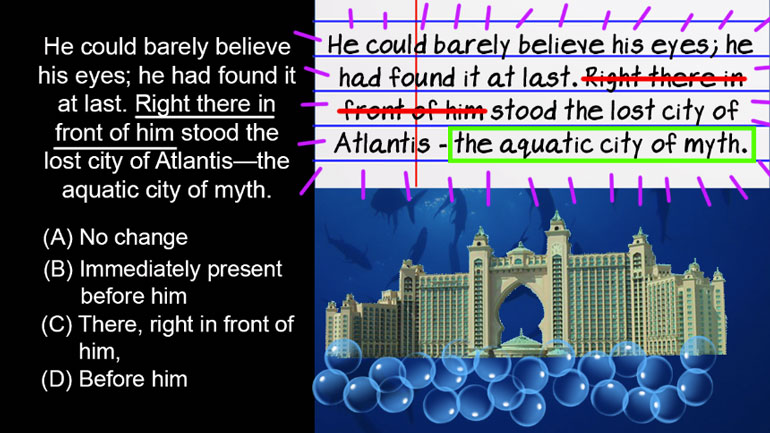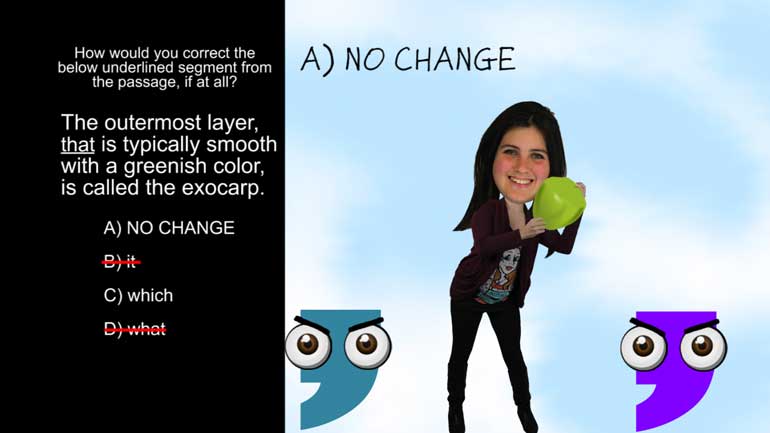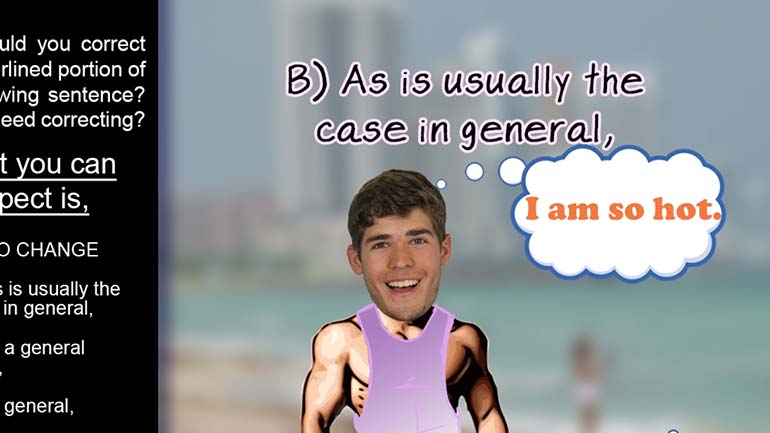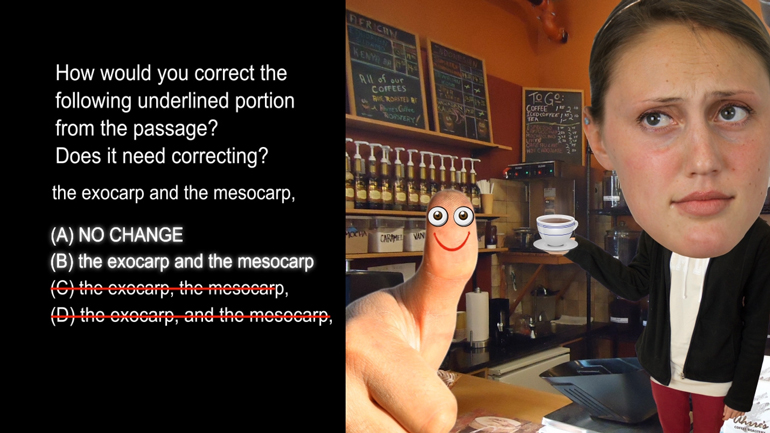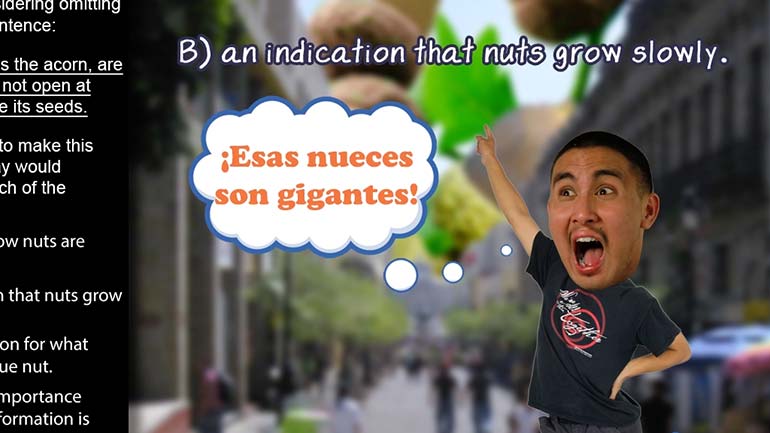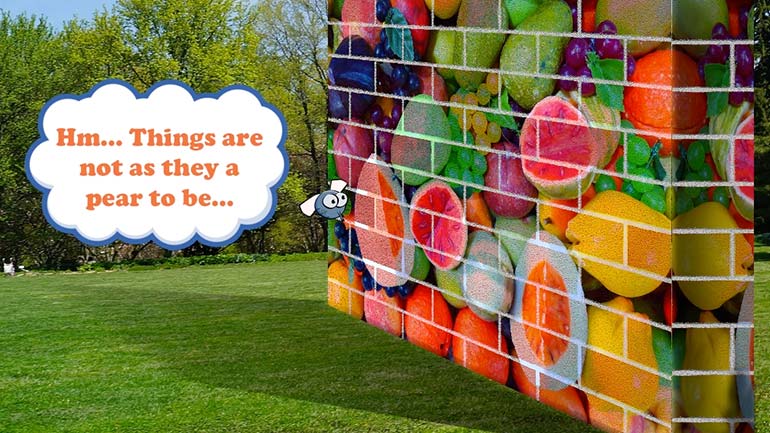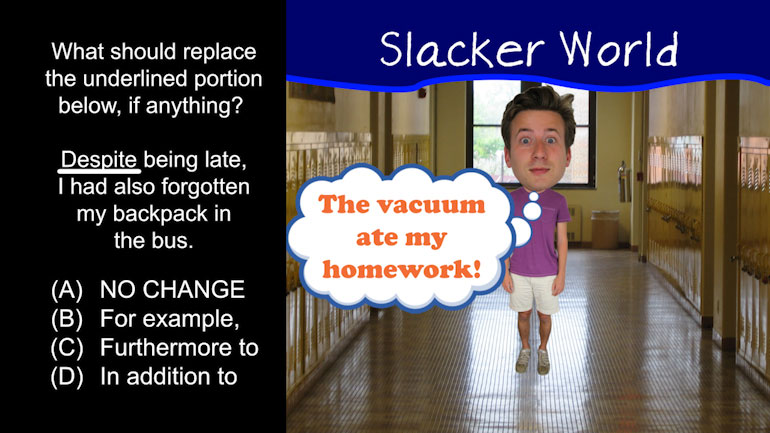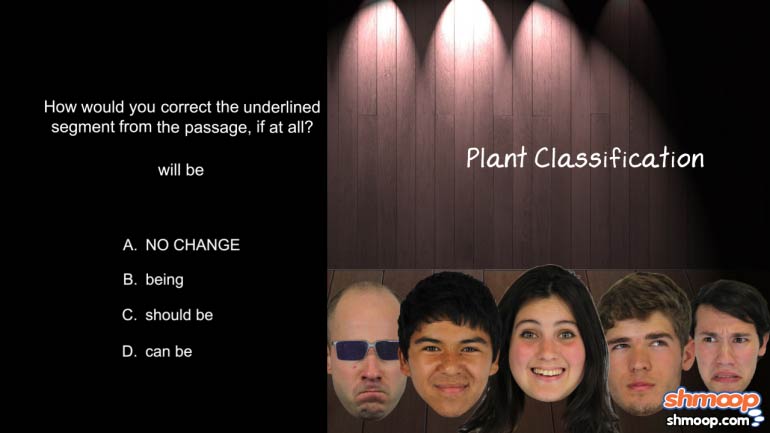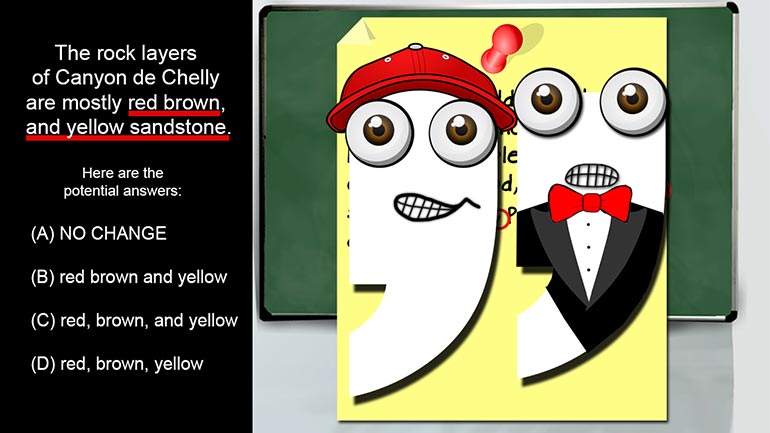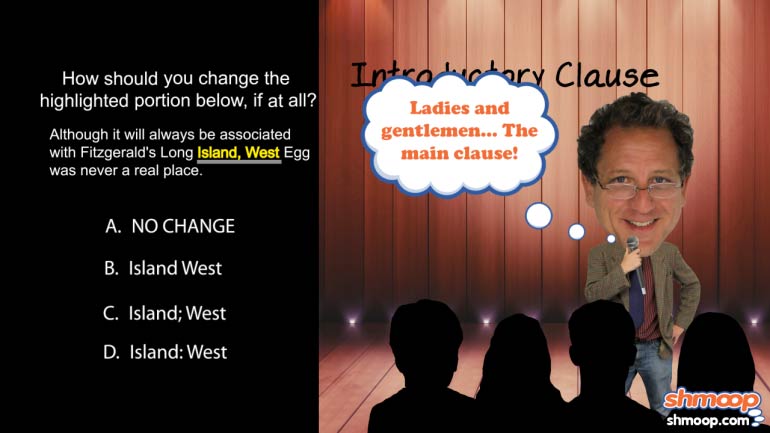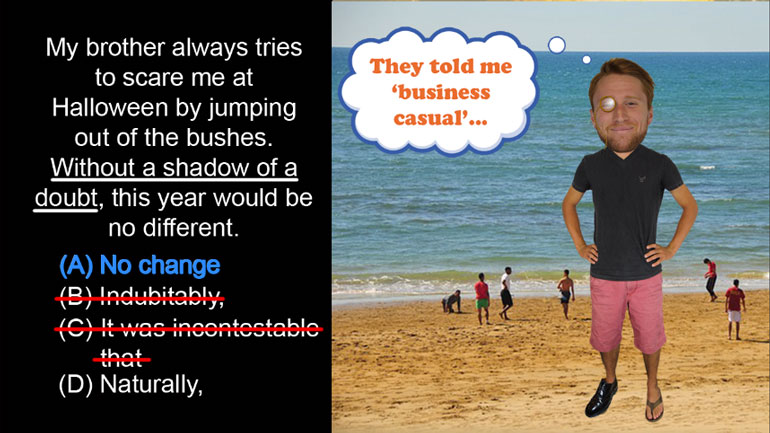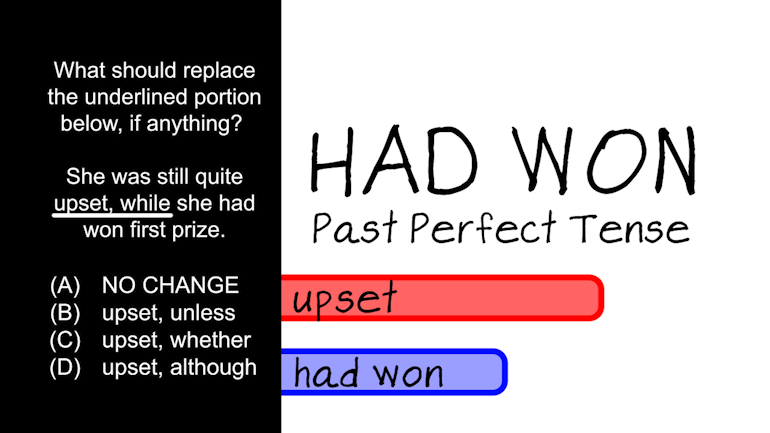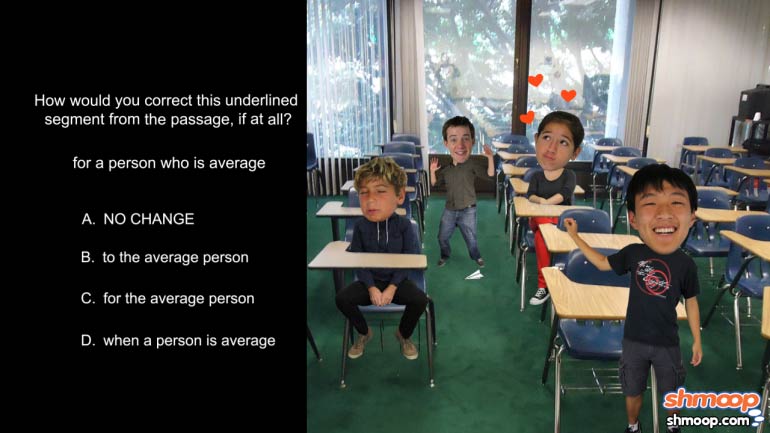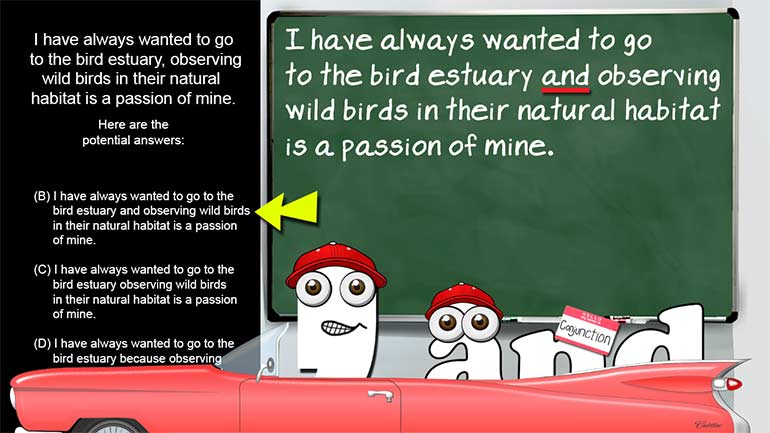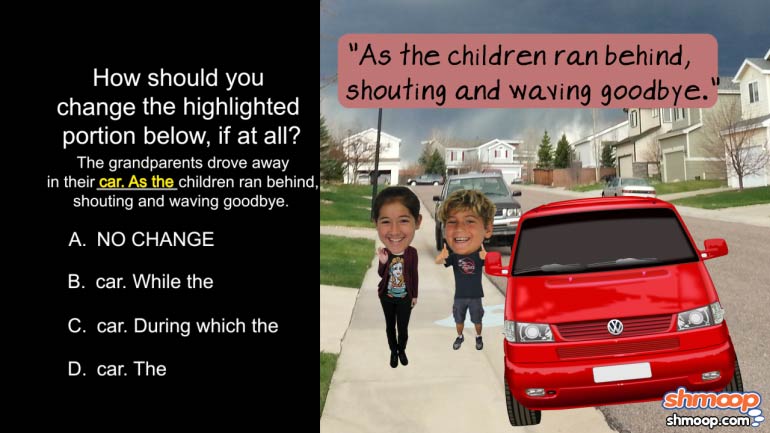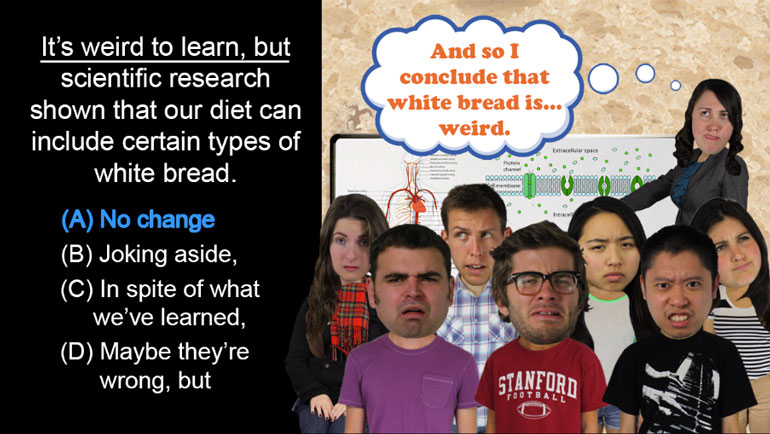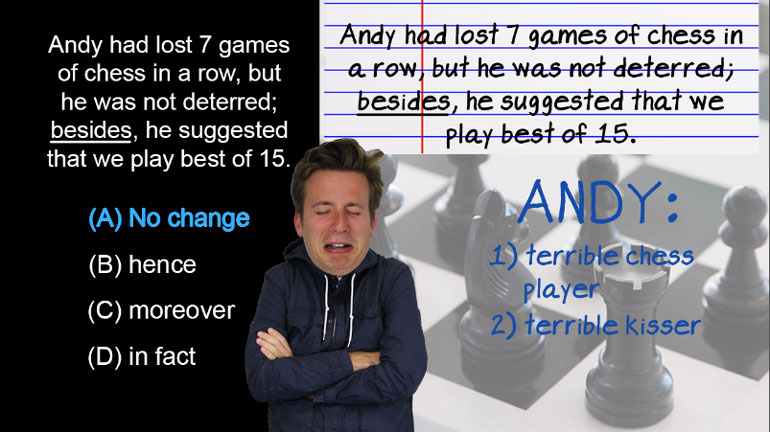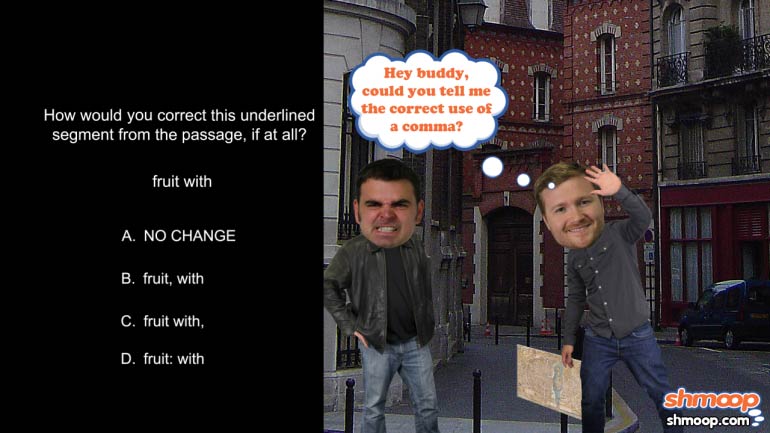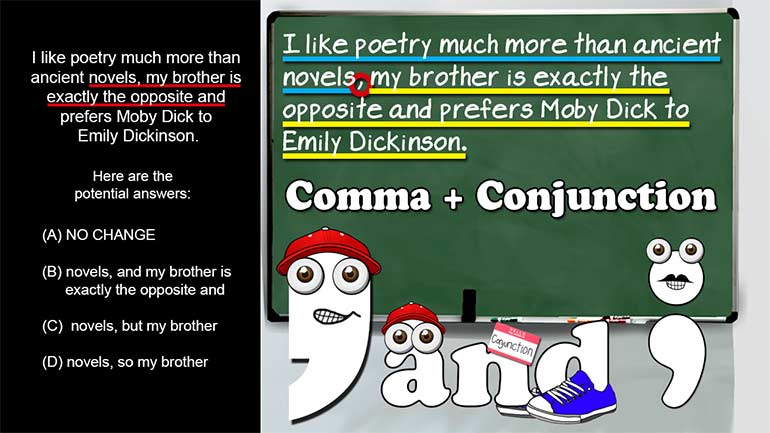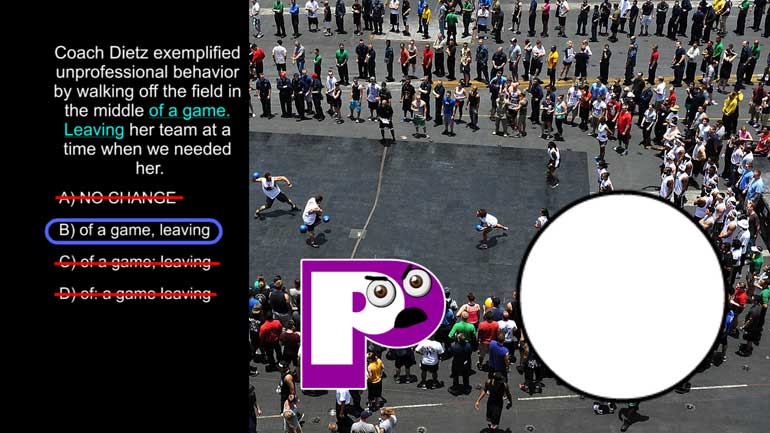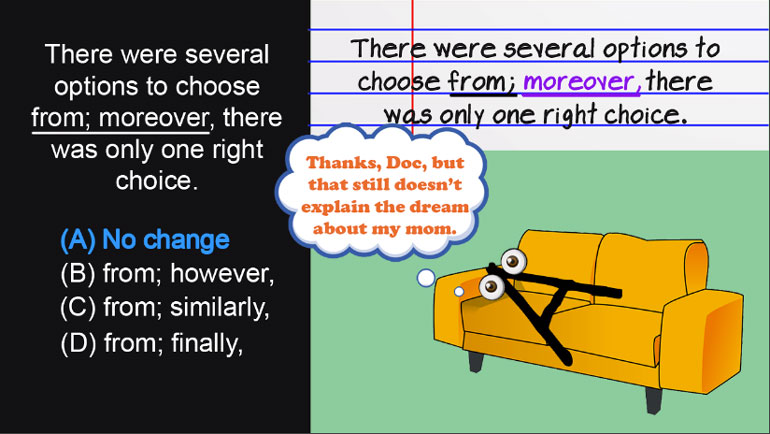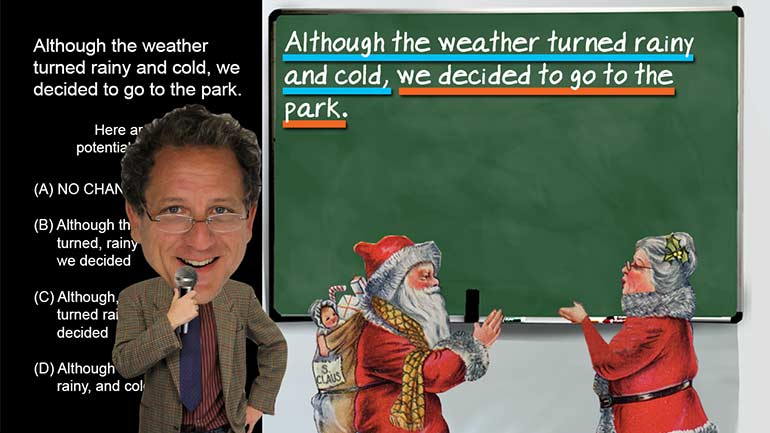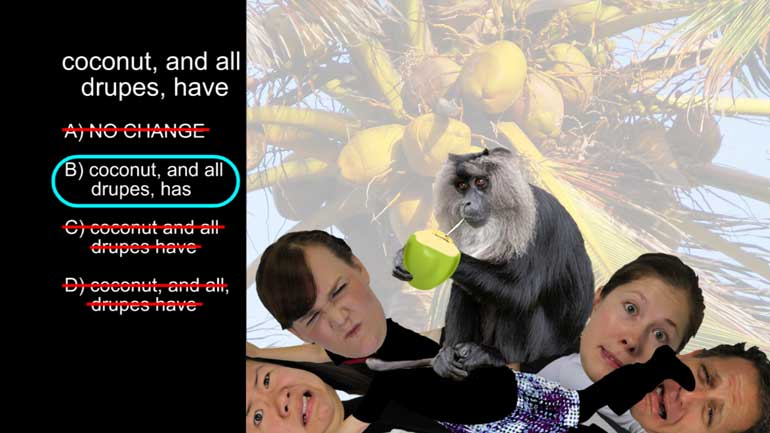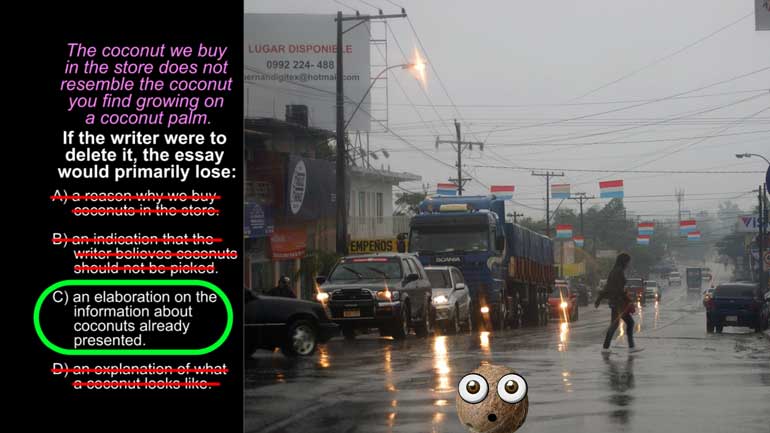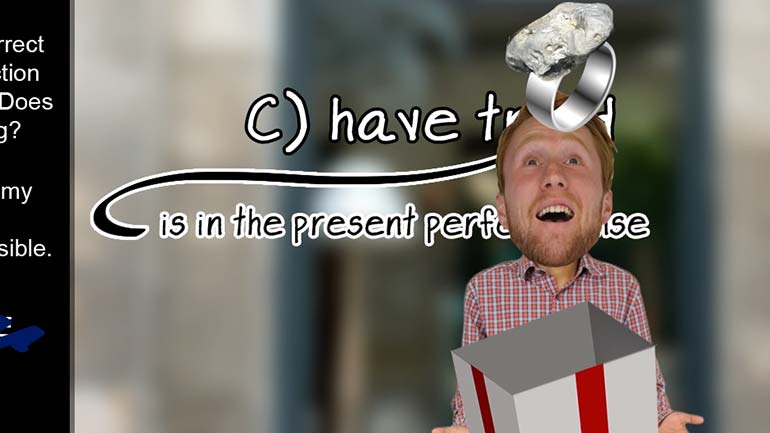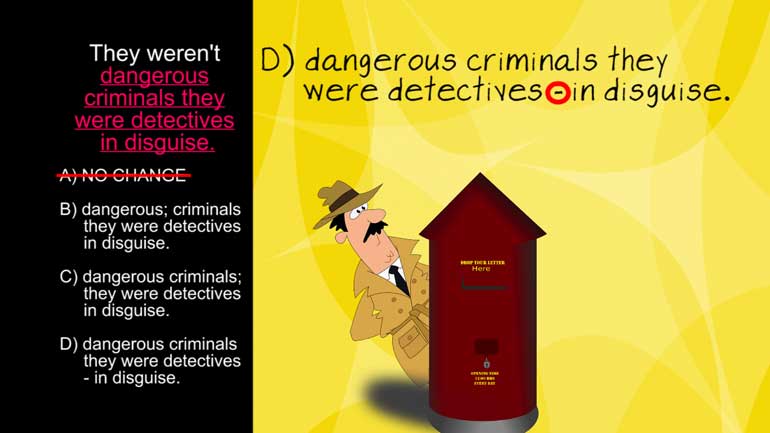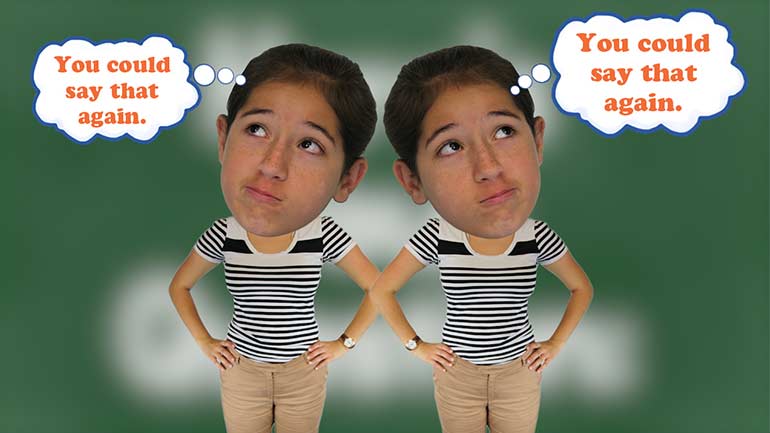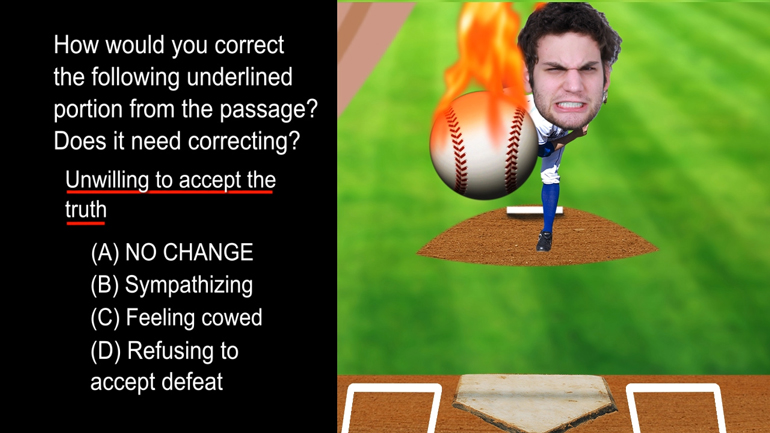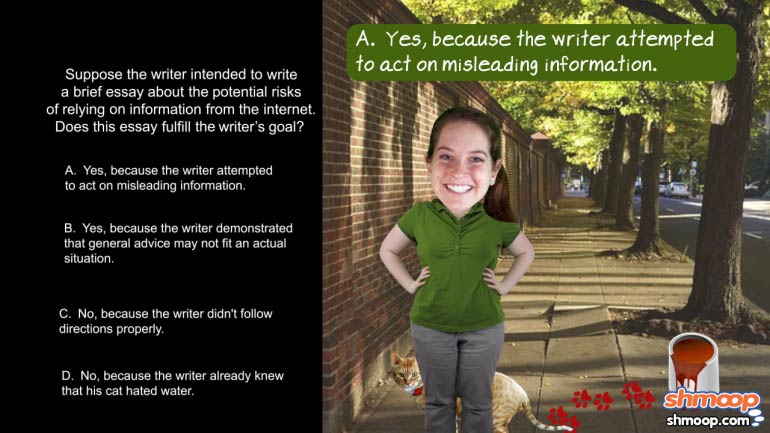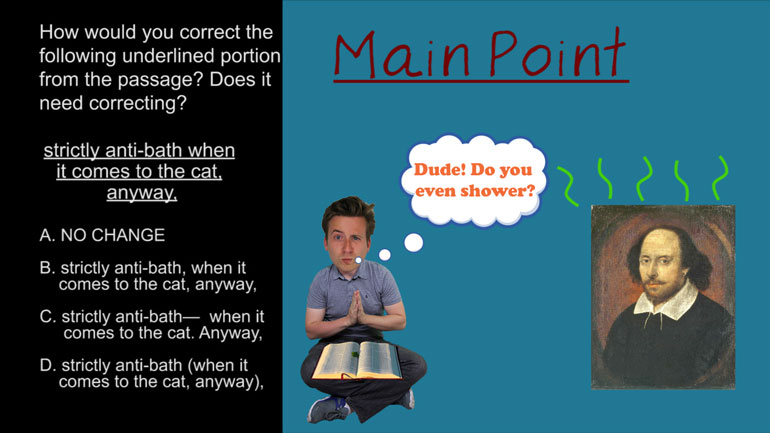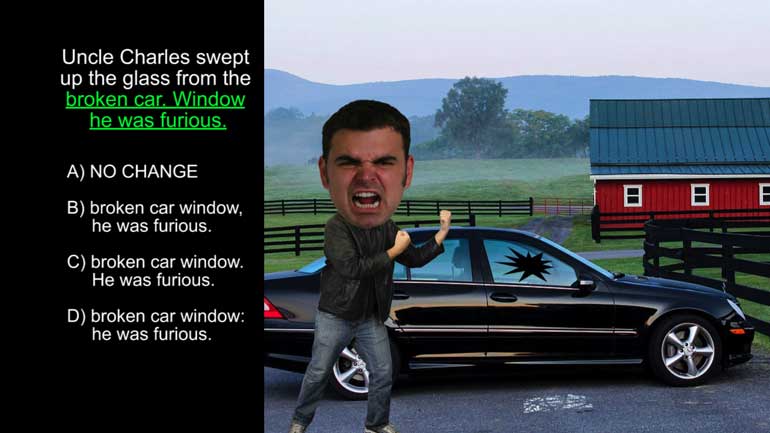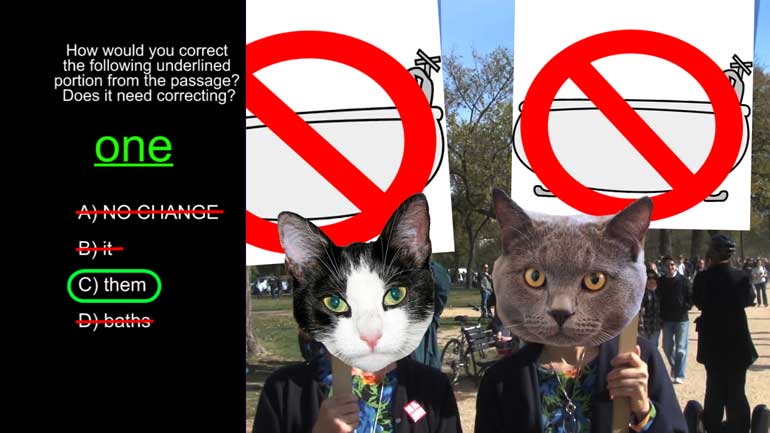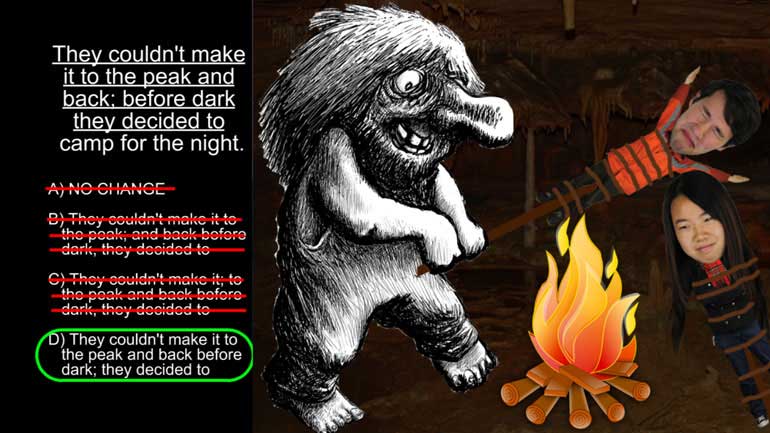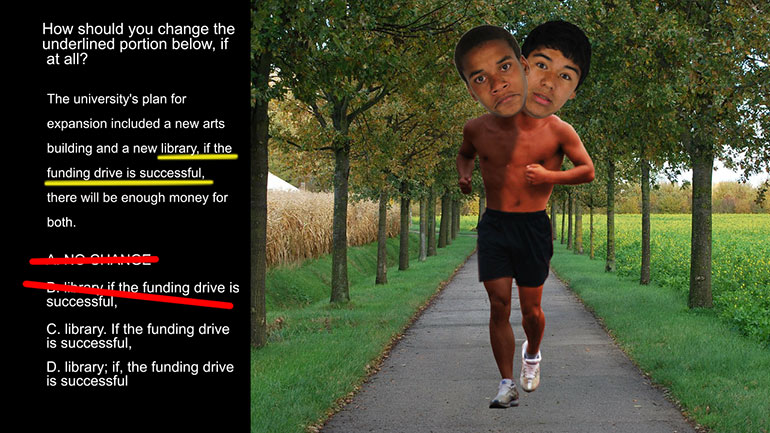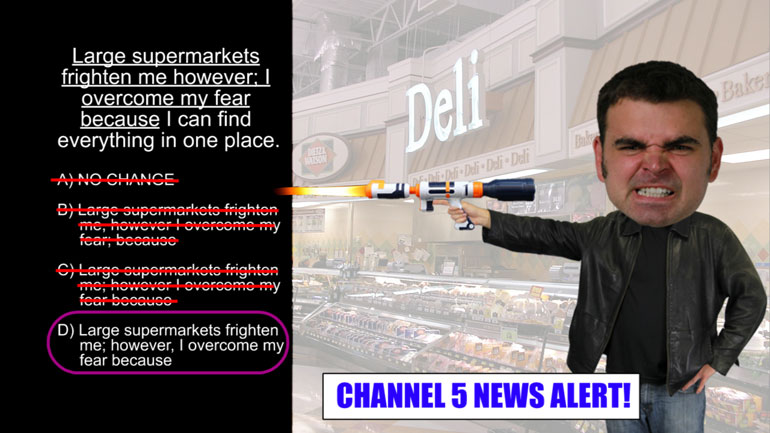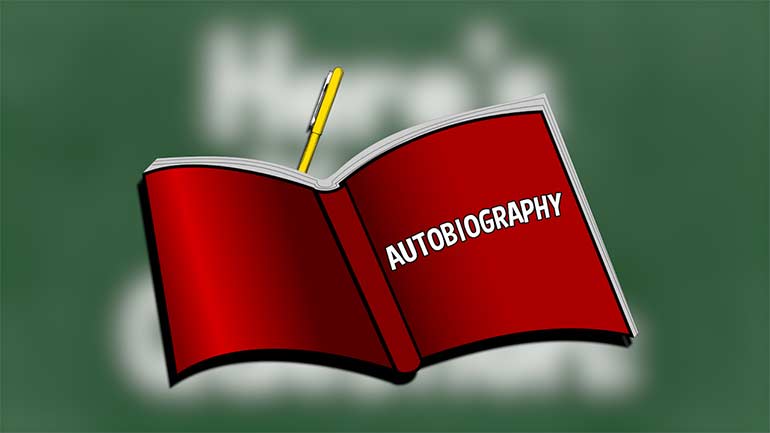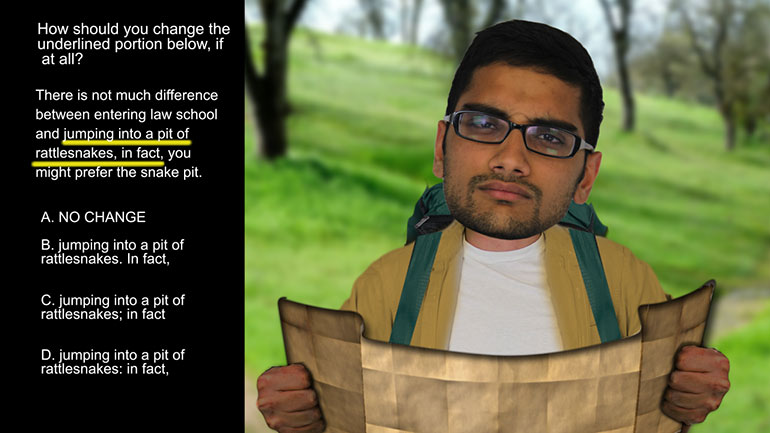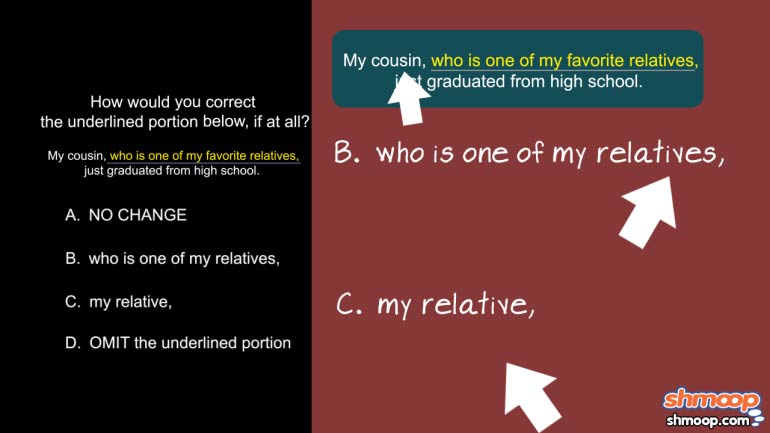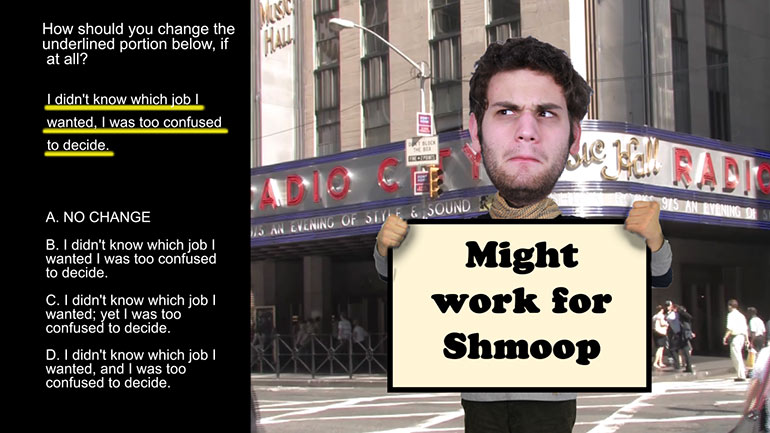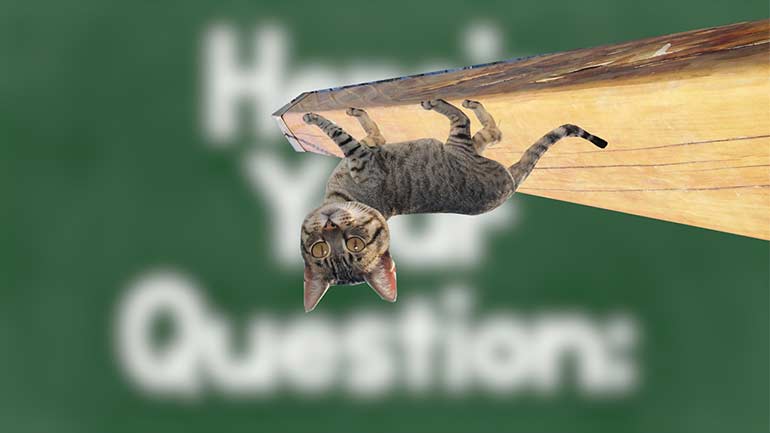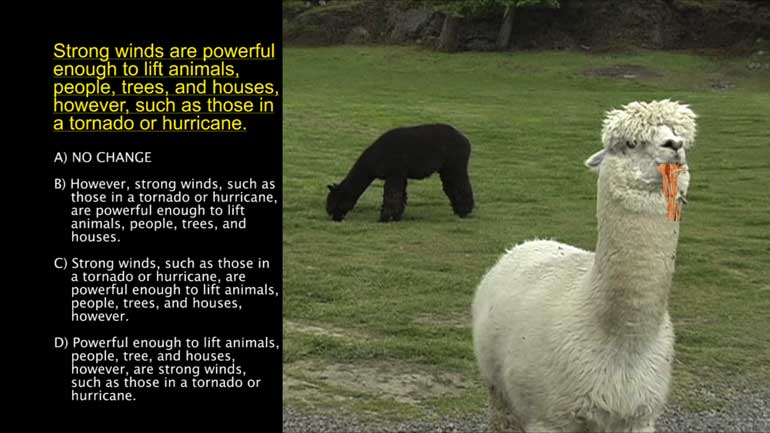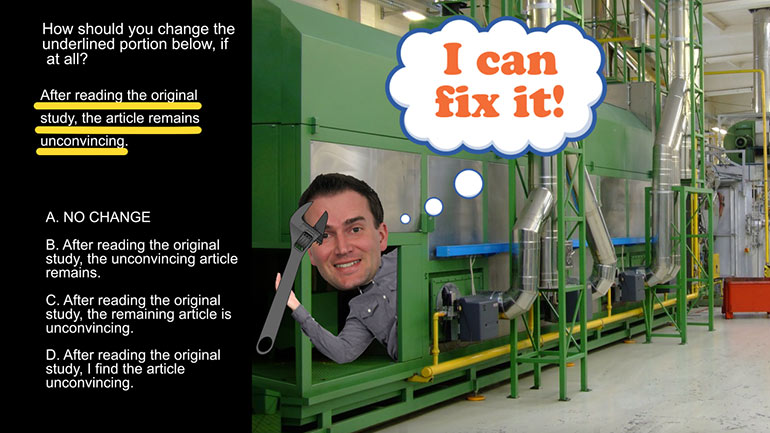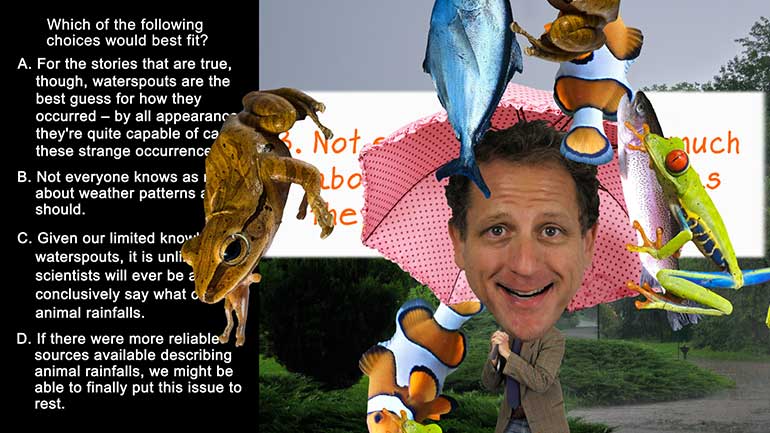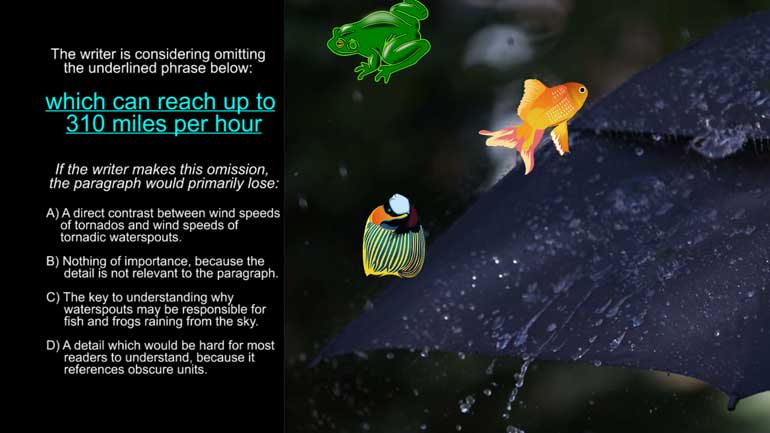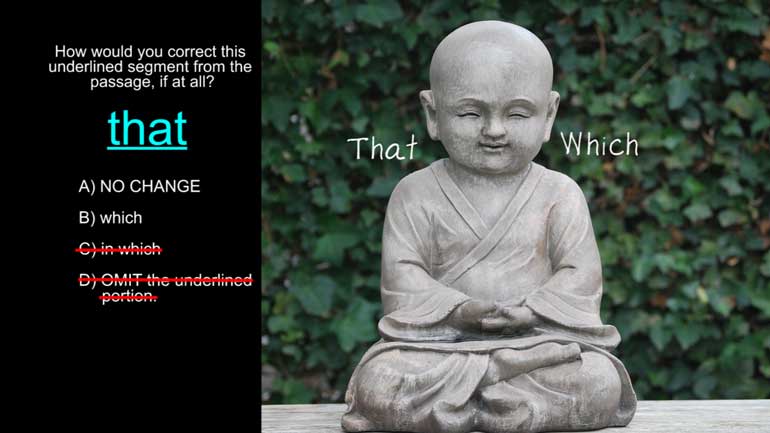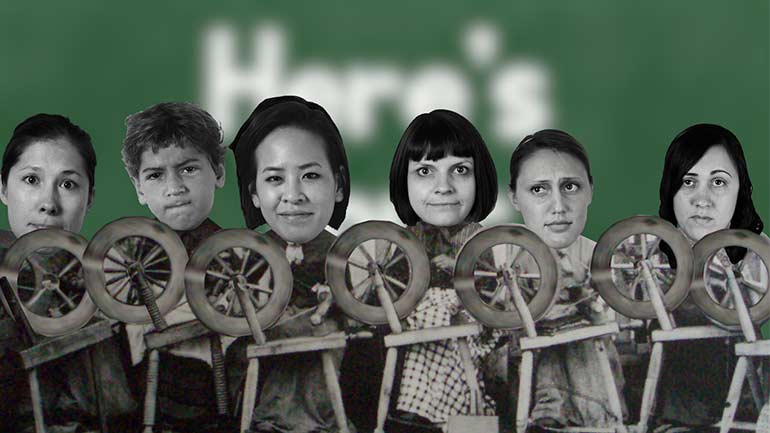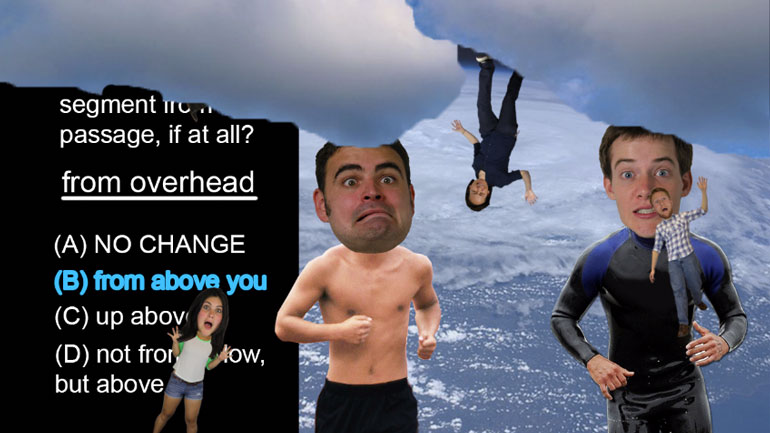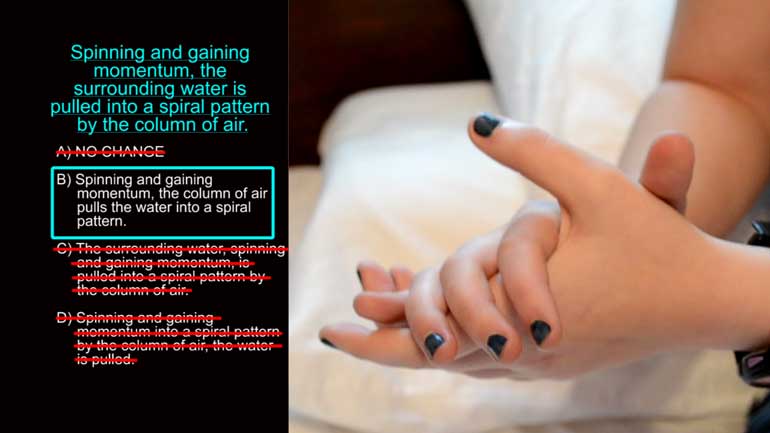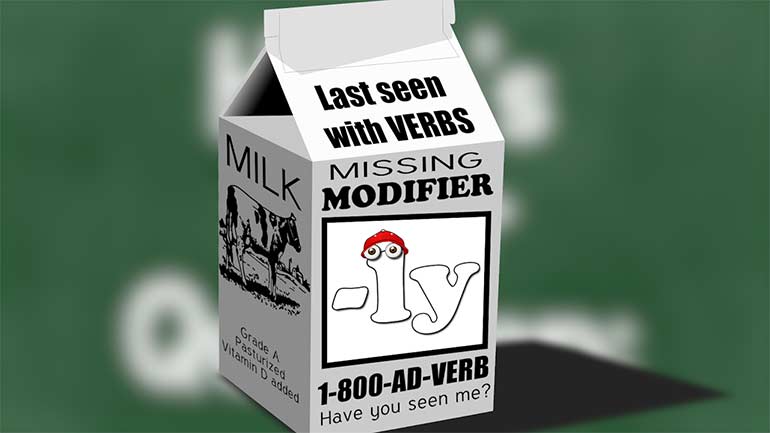ShmoopTube
Where Monty Python meets your 10th grade teacher.
Search Thousands of Shmoop Videos
ACT English Videos 157 videos
ACT English: Grammar and Usage Drill 1, Problem 1. What should replace the underlined word?
ACT English: Grammar and Usage Drill 1, Problem 2. Does the underlined word match the subject and tense?
ACT English: Grammar and Usage Drill 1, Problem 3. Which answer best matches the subject of the sentence?
ACT English 1.2 Sentence Structure 387 Views
Share It!
Description:
ACT English: Sentence Structure Drill 1, Problem 2. What punctuation do we need between these clauses?
Transcript
- 00:04
Here's your Shmoop du jour, brought to you by Long Island. Although, to be fair, it's
- 00:09
what's IN an island that really counts.
- 00:11
How should you change the highlighted portion below, if at all?
- 00:15
Although it will always be associated with Fitzgerald's Long Island, West Egg was never
- 00:21
a real place.
Full Transcript
- 00:27
The word "although" at the top of the sentence signals that the first clause is dependent,
- 00:32
meaning that it can't stand on its own as a complete sentence.
- 00:35
In fact, the first clause is what's known as an introductory clause, a type of clause
- 00:40
that sets the stage for the main clause to come.
- 00:43
Choice (B) is incorrect because it doesn't separate the introductory clause from the
- 00:45
main sentence.
- 00:47
Without any kind of punctuation dividing these clauses, we have ourselves a major run-on
- 00:50
sentence.
- 00:51
Run-ons are just exhausting for everybody involved, so we'll definitely leave (B)
- 00:55
by the wayside.
- 00:57
Choice (C) uses a semicolon. It's nice that it tries to throw a little punctuation in
- 01:01
there, but it's not the kind of punctuation we need.
- 01:03
Semicolons are used to connect independent clauses.
- 01:06
Since we know that our introductory clause is totally dependent on the main sentence,
- 01:10
we can nix choice (C).
- 01:12
The colon that choice (D) throws at us doesn't work either.
- 01:15
Sure, colons can be used to connect dependent or independent clauses, but they usually introduce
- 01:21
an explanation of some kind.
- 01:24
Our second clause here isn't doing anything to explain the first, so (D) is off the table.
- 01:29
This means that our original sentence gets it right, by separating the introductory clause
- 01:33
from the main clause with a good old-fashioned comma.
- 01:36
Wait - West Egg isn't real? Sigh, first Santa Claus, now this...
Related Videos
ACT English: Punctuation Drill 2, Problem 2. Where should the semi-colon be placed?
ACT English: Punctuation Drill 3, Problem 1. How should this sentence be changed so that it is grammatically correct?
ACT English: Punctuation Drill 3, Problem 2. How should we properly hyphenate the words in this sentence?
ACT English: Punctuation Drill 3, Problem 4. Which choice best formats this list of items?
ACT English: Punctuation Drill 2, Problem 1. Which choice of punctuation best completes the sentence?
